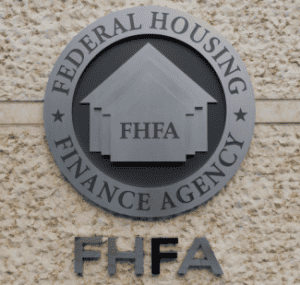Myth and Madness Surround Cypress Garden Mulch
by Louisa May
True or False? Cypress mulch is an environmentally friendly, rot and insect-resistant good choice for your garden. The answer is FALSE.  Many people think that cypress mulch is a by-product of tree milling operations in Louisiana, Alabama, and the other Gulf states. This, too, is false. The mulch industry is clear cutting thousands of acres of bald cypress trees just to chip, bag, and send off as mulch to your local gardening center. So what?
Many people think that cypress mulch is a by-product of tree milling operations in Louisiana, Alabama, and the other Gulf states. This, too, is false. The mulch industry is clear cutting thousands of acres of bald cypress trees just to chip, bag, and send off as mulch to your local gardening center. So what?
According to a study commissioned by the Louisiana Governor in 2004 to assess the state’s coastal forests, these cut trees may be gone forever.
The Science Working Group (SWG) determined that 80% of these trees will not grow back, due to changes in elevation and water flow in the last hundred years. Many cypress forests are permanently flooded, and besides having a specific habitat, the seedlings need to germinate on dry land. This matters.
Cypress forests provide the best defense for coastal communities against hurricanes, and they are more enduring than earth or concrete levees. Root systems of cypress trees are extensive, spreading several hundred feet. Their buttressed bases help them stand tall in muddy water, serving as an anchor against high winds, storm surges, and flood waters. Green ash, maple, Chinese tallow, and invasive species are replacing and changing the landscape of clear- cut cypress forests, but these trees offer none of the same protection. According to the Save Our Cypress coalition and conservation network, cypress trees also filter pollutants and excess nutrients before they contaminate swimming and fishing areas. The Atchafalaya Basin in southern Louisiana is the nation’s largest swamp (1.4 million acres). It is not protected from clear cutting operations. Over 300 bird species, including the recently rediscovered ivory-billed woodpecker, and over half of all migrating birds in North America, up to 2 million a day, call this cypress forest home.
The federal government is setting aside billions of dollars to restore storm and hurricane damaged areas in coastal states. These same states are cutting down the trees that offer the best protection from hurricane damage.
According to Dan Favre, campaign manager for the non- profit Gulf Restoration Network, gardeners have been misled. “People think that cypress mulch is more rot resistant and insect resistant, but scientists at the University of Florida have shown that there are equally effective, sustainable alternatives that don’t deplete natural wetlands and don’t deprive our gardens of mulching. …Popularity of cypress mulch is predicated on myth.”
An article in the Waterkeeper Alliance newsletter confirms that only the “heartwood” from mature cypress trees is rot and termite resistant, and mulch being made from young trees doesn’t have these qualities. There are, however, many sustainable alternatives to cypress mulch.
1. Pine bark mulch- This mulch lasts a long time, comes in nuggets or shredded form, and is a by -product of timber milling. Made from scraps of trees that are turned out as lumber, this waste becomes beneficial mulch.
2. Eucalyptus mulch- If you like the aesthetics of cypress, this is the mulch for you. It’s aromatic and looks like cypress, keeps weeds away well, and is farmed for mulch.
3. Leaves- Leaves are nature’s original mulch. Other creative choices include recycled pecan shells, coconut husks, and sugarcane bagasse.
So don’t be surprised if you see a “mulch matters” booth set up by Gulf Restoration Network at the next home and garden show you attend. The “mulch matters” kit shows consumers the choices I’ve listed above that are available for environmentally friendly mulch. It’s an easy way to help keep cypress trees in the forest and not shredded in our gardens.
Check out our Green Pages for information on money saving tips that help the environment. Once there, click on the Green Forum to see more articles by our green feature writer Louisa May.
American Apartment Owners Association offers discounts on products and services related to your commercial housing investment, including real estate forms, tenant debt collection, tenant background checks, insurance and financing.
Find out more at www.joinaaoa.org.
To subscribe to our blog, click here.















 Accessibility
Accessibility